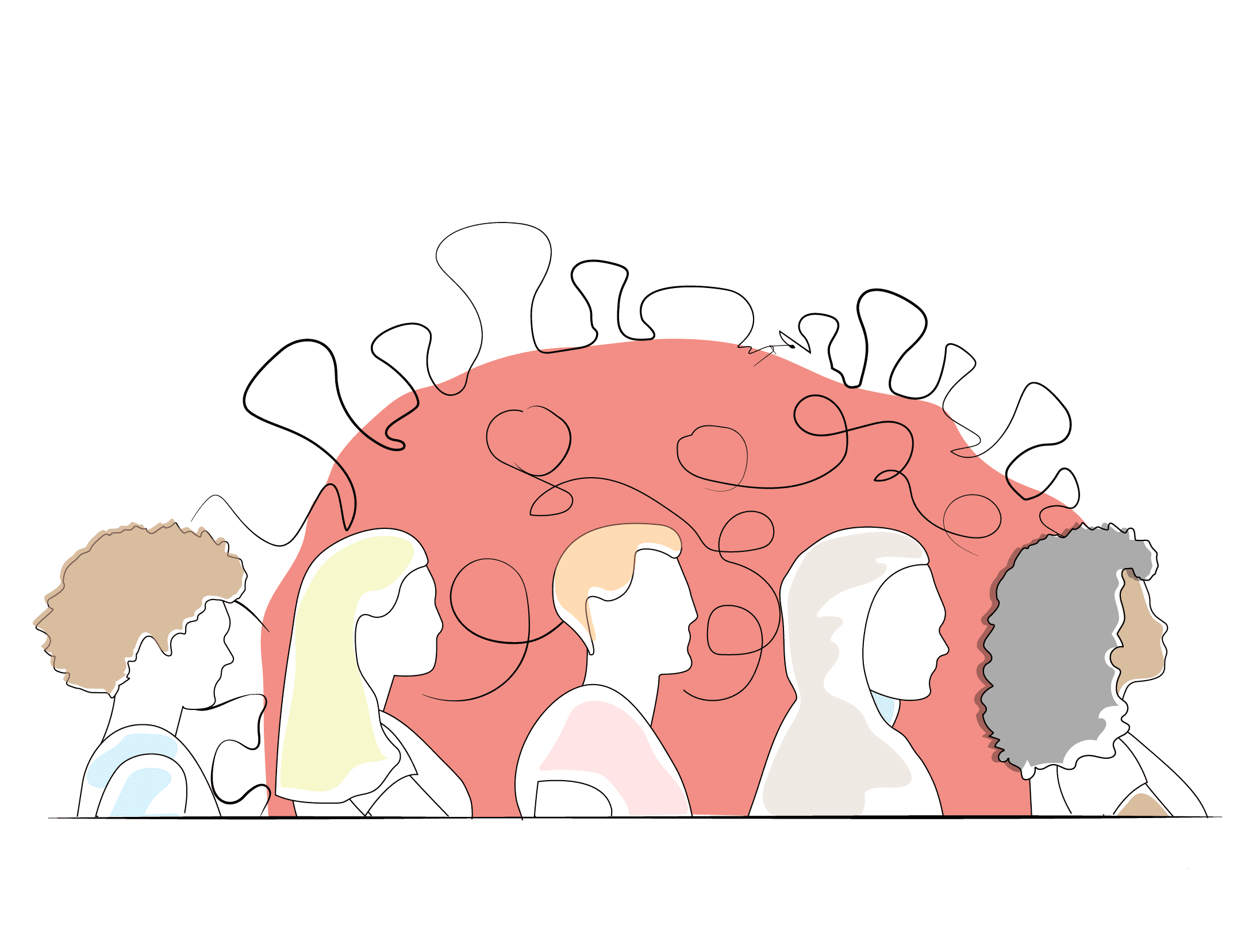The study of the big picture of the epidemics in the Long COVID is helping to direct the medicine to a more stable and sustainable way of the patients. At the Yale School of Medicine (YSM), the Innovative Support for Patients with SARS-CoV-2 Infections Registry (INSPIRE) study, led by epidemiologist Arjun Venkatesh, MD, and cardiologist Erica Spatz, MD, has been following people about 5,000. those diagnosed with COVID-19 and highlight the importance of researchers and clinicians listening to patients. His unique, patient-centered approach can benefit not only those with Long COVID, but also many people who already live with other mysterious syndromes.
A study comparing the effects of SARS-CoV-2 infection
The INSPIRE study spans eight research institutions around the country, including Yale New Haven Health; Rush University Medical Center; University of Washington; University of Texas Health Science Center at Houston; University of Texas Southwestern Medical Center; University of California, Los Angeles; University of California, San Francisco; and Thomas Jefferson University. This, which began before the vaccine was developed, followed 4,800 people for up to 18 months who were infected with the SARS-CoV-2 virus. The researchers are using this to identify patients with different types of COVID and compare those who have developed Long COVID and those who have recovered from the initial infection.
“We wanted to document COVID and Long COVID,” says Dr. Spatz, recalling the early days of the investigation. “We wanted to answer questions from the early-stage COVID patients we treat, such as what to expect and how long it will take to recover.”
The team also tried to ensure that those who had not received a history of medical research were included in the study. Researchers at YSM advertised on various platforms and websites and tried to find participants through the YSM Cultural Ambassadors program, a partnership between YSM and leaders of the Black and Latino community. INSPIRE also included more people over the age of 65 in their research.
Special focus on quality of life

Instead of looking at patients’ bodies or focusing on recovery from specific symptoms, the INSPIRE study also used a unique, patient-centered approach. In addition to collecting data, researchers asked patients to describe how their lives were affected.
Dr. “We asked people about their mental health, pain, health, and sleep,” says Spatz.
“Many of the symptoms of Long COVID are not bad enough to hospitalize a patient, but they can keep people from working or participating in family or community life,” says Dr. Venkatesh. He says that pharmaceuticals should follow the INSPIRE guidelines and ask patients how they feel.
There are standardized scales to measure patients’ quality of life and compare them to the general population of healthy American adults or their age. Known patient data, Dr. Venkatesh and Spatz believe that, it is easier to calculate and easier to find than we know. Students can answer surveys from their phones, for example, which can be accessed by clinicians or researchers.
The researchers also hope and hope that taking this approach to the treatment of Long COVID will encourage people and medical professionals to listen and confirm the experiences of patients with many types of chronic diseases, including those whose symptoms are not seen by others.
Dr. Spatz says: “Post-viral syndrome is common among many other viral diseases, and we haven’t been treating it enough,” says Dr. Spatz.
Future research directions
Post-viral syndromes, including Long COVID, may have different causes. More multidisciplinary research—including scientists, therapists, and pathologists themselves—is needed for these types of chronic diseases, the researchers say.
Dr. Spatz would like to see future research comparing what happened to those who recovered from Long COVID and those who did not. He said: “We want to know what made them feel better, and when they started to feel better.” “Hundreds of people around the world can contribute and participate in this research.”
More immunological research comparing how patients describe their recovery from Long COVID with what we know about how the immune system works would be helpful, he adds.
Dr. Venkatesh hopes that more research and awareness of the disease will benefit more people, medicine and more. “Patients with chronic illnesses have a lot of stigma,” he says, “and the definition of long-term COVID or the recognition of Long-term COVID-related injuries will hopefully reduce that stigma.”
Christina Deptula is a freelance writer based in Davis, California.
The final words of Lisa Sanders, MD:
Research like the INSPIRE study provides important information on post-infectious diseases such as Long COVID. Their longitudinal observation of patient encounters – starting with the virus itself – will reveal possible links between different types of COVID and different forms of Long COVID. And in doing so, this can teach us something about symptoms, causes, and possible cures.
The most important thing in this research is that Dr. Spatz and Venkatesh seek answers from those who know the Long COVID best – those who have it and know it from the inside. Their study has already taught us a lot about Long COVID, and I hope to see more from them in the future.
Read other sections of Long COVID Dispatches Here.
If you would like to share your experience with Long COVID for use in this blog (under a pseudonym), write to us at: LongCovidDispatches@yale.edu. It may appear, space permitting, in a future post.
The information provided in the Yale Medicine journal is for informational purposes only. It should not be used as a substitute for medical advice from a physician or other qualified practitioner. Always ask your doctor for advice with any medical questions you have.
#Listening #Patients #Improving #LongTerm #Care #COVID #Issues